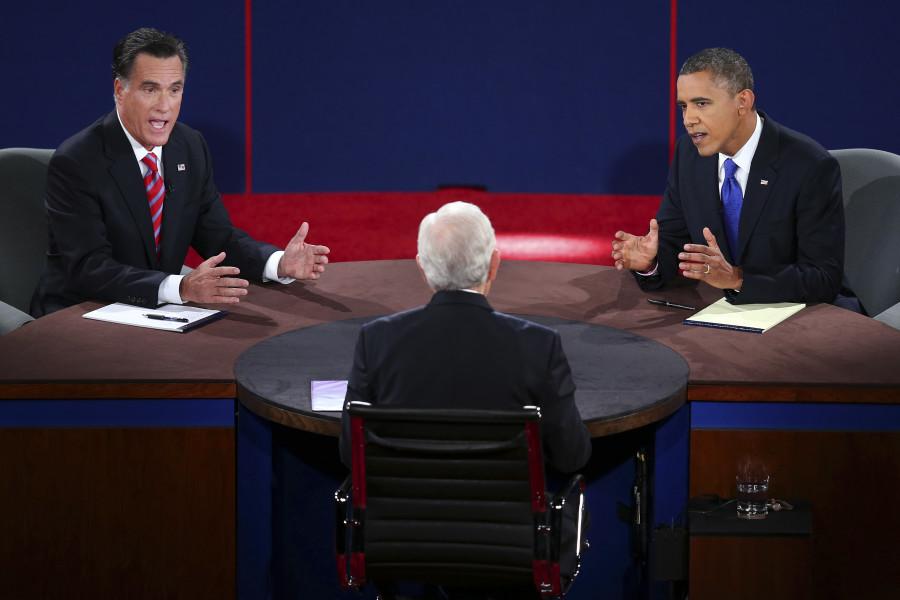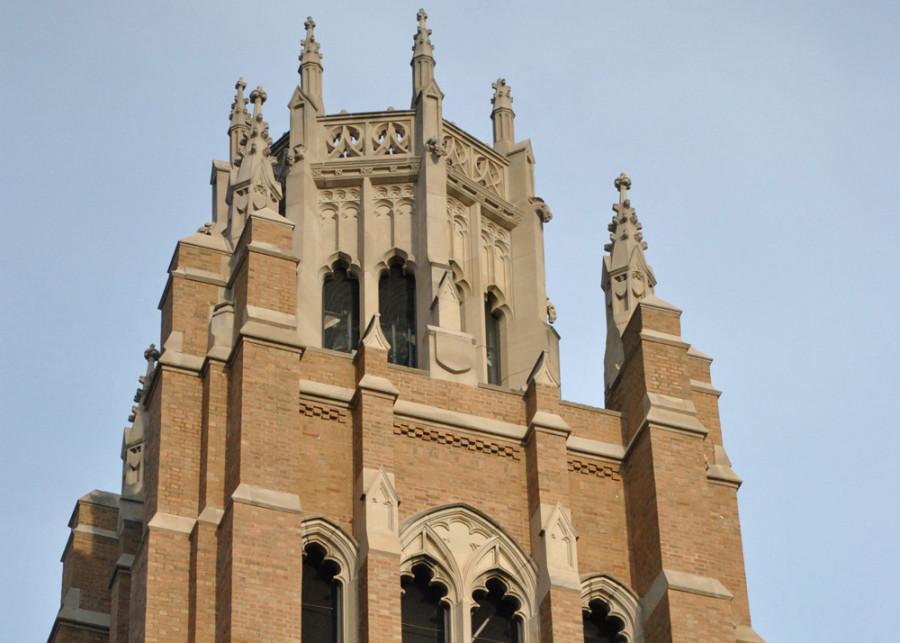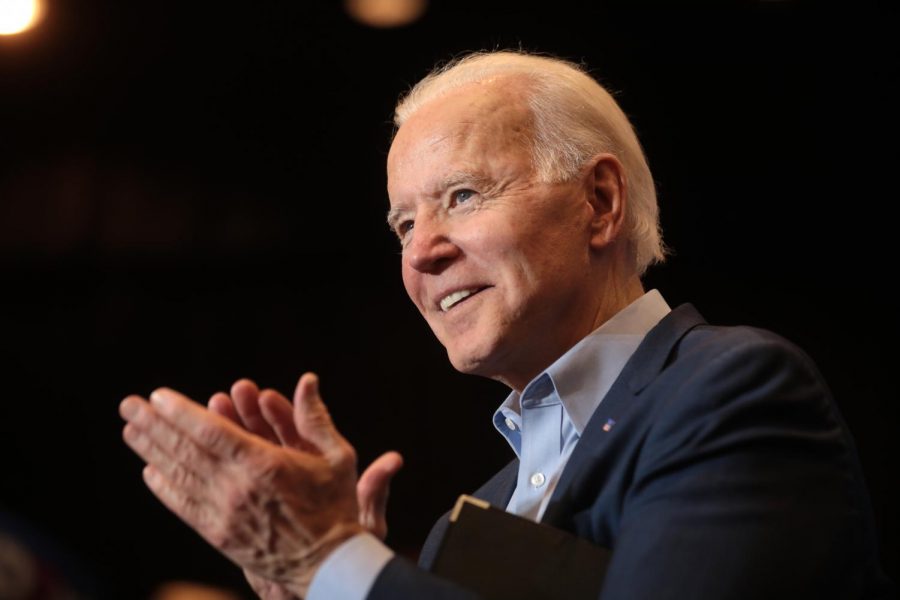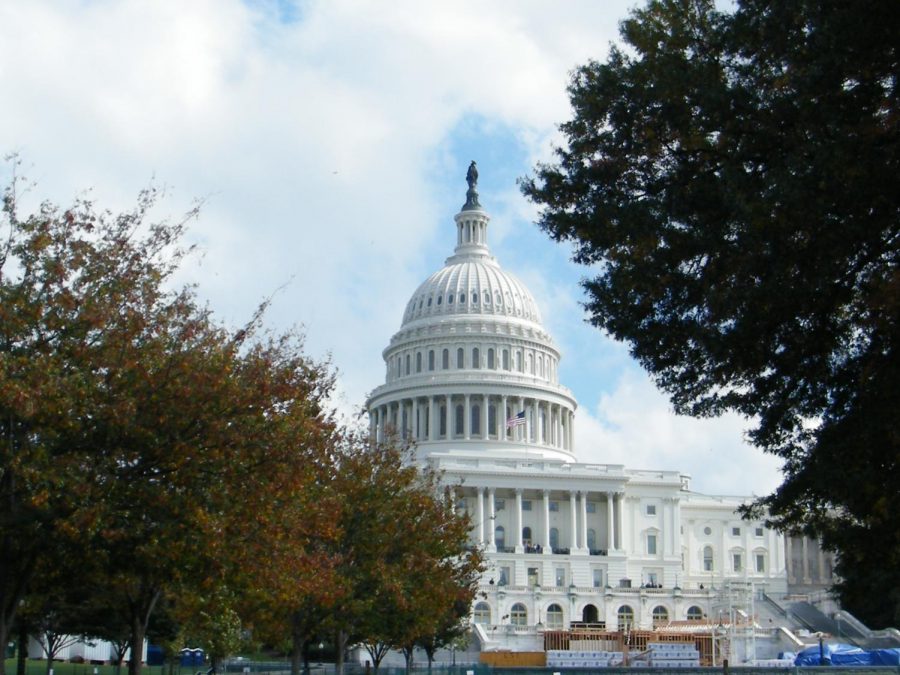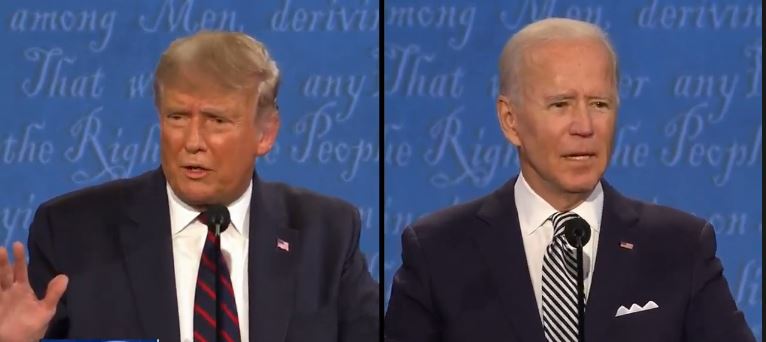 After months of hope, bank collapses, debates and Saturday Night Live skits, Barack Obama was sworn in as president of the United States 366 days ago. More than one million people crammed onto the National Mall in Washington, D.C., hoping to catch a glimpse of Obama on the balcony of the Capitol building — even if they were more than a mile away at the base of the Washington Monument. Millions of others watched optimistically on television as he recited the oath of office.
After months of hope, bank collapses, debates and Saturday Night Live skits, Barack Obama was sworn in as president of the United States 366 days ago. More than one million people crammed onto the National Mall in Washington, D.C., hoping to catch a glimpse of Obama on the balcony of the Capitol building — even if they were more than a mile away at the base of the Washington Monument. Millions of others watched optimistically on television as he recited the oath of office.
Tony Damiano, a senior in the College of Arts & Sciences, attended the inauguration after helping on the Obama campaign in 2008.
“Everyone there felt they were part of something really important,” he said.
The radiance of that moment has dulled somewhat as citizens begin considering what Obama has done with his first year in office.
[yt]pHbKQBA9Vng[/yt]
In many respects, it’s hard to say.
The United States will still have troops in Iraq through the summer, and the president ordered a 30,000-troop increase in Afghanistan in December. The unemployment rate, which, according to the Bureau of Labor Statistics, had been increasing steadily since May 2008, began to stabilize at the end of 2009, but at 10 percent. A health care reform bill was pushed through the House of Representatives, thanks mostly to a Democratic majority. Tuesday’s election of Republican Scott Brown to fill former Democratic Sen. Ted Kennedy’s vacant seat has put that effort in danger of failure.
Jen McNamee, a sophomore in the College of Arts & Sciences and chairwoman of College Republicans, called the bill a “reckless attempt to pass health care legislation behind closed doors” in an e-mail, and said Brown’s election is a referendum on the policies the Obama administration has pursued.
The health care reform bill, were it to pass, would be an enormous victory for the Obama administration. Democratic presidents such as Lyndon Johnson, Bill Clinton and Franklin Roosevelt failed to reform the American health care system during their terms because the discussion often turns to single-payer or nationalized health care. Darlene Weis, associate professor emerita in the College of Nursing and an expert on health care reform, said the nationalized ideology is one that doesn’t hold with traditional American values.
Private health care also tends to be of better quality, which is another reason Americans are wary of a single-payer structure, Weis said.
In the quest for reform, the president’s greatest ally was the majority his party held in both houses of the Legislature, but Brown’s election in Massachusetts means the current reform bill will likely not pass as constituted.
“(The election) is a big blow for the president’s health care reform efforts,” Weis said.
In order to be successful, the bill would need to be significantly revamped and represent the efforts of both parties, she said.
Economically, the country is in better shape now than it was when Obama took office, said Jim McGibany, executive associate dean of the College of Business Administration.
Part of the recovery had to do with the financial bailouts. The banking system was close to Depression-era panic levels, but the bailout money helped to ease that panic mentality, McGibany said. Despite the financial rebound, there is some concern over inflation because the financial bailout flooded the economy with extra cash, which could lead to a devaluation of the dollar, he said.
The housing market is also on its way to recovery because of the availability of cash at banks, which will entice people to take out loans and eventually trigger increases in consumer spending, which is still struggling to get back to pre-recession levels, McGibany said.
While much of the uncertainty surrounding the economy has dissipated over the year, firms are still tentative to hire new employees because they are unsure how pending legislation — including the health care bill — will affect business, which is why the unemployment rate is still high, he said.
The American Recovery and Reinvestment Act has also not lived up to expectations. The number of jobs created by the $787 billion act is nowhere near what it was estimated to be, and it’s difficult for economists to determine how many jobs were saved by the stimulus. Additionally, the stimulus package had little to no effect on the private sector, McGibany said.
As in other recessions, it is difficult to determine which sectors are recovering and which are still on the decline, he said. Some markets, including the commercial real estate market, have yet to hit bottom. Many office buildings have stood vacant and condominium projects have stalled, and until improvement in other economic indicators occurs, those buildings will remain that way, McGibany said.
McNamee derided the stimulus package and said despite the billions of dollars spent on the recovery act, thousands of Americans continue to lose their jobs. In the fiscal fourth quarter of 2009, the country lost an average of 69,000 jobs per month, according to the Bureau of Labor Statistics. While substantial, these losses are only a tenth of the 691,000 jobs lost per month in the first quarter of 2009.
Naturally, Obama supporters have been enthused with the work the president has done in the last year. Damiano said he hasn’t been happy with everything, but is generally pleased with Obama’s first year in office.
“I was under no illusions that he’d remake the country in one year. That’s ridiculous,” Damiano said. He added that as the economy continues its slow recovery, it will build the country’s confidence in Obama and allow him to accomplish more of his legislative goals.
Timeline of Obama’s first year in office
Jan. 12: As president-elect, Obama writes a letter to the Senate and House of Representatives asking those bodies to release $350 billion in bank bailout funds, which are injected into the banking system in an attempt to kick-start idling credit flow following 2008’s financial collapse.
Jan. 20: Obama is sworn in as the 44th President of the United States before more than a million spectators on the ground in Washington, D.C. Millions watch the proceedings on television.
Jan. 22: Signs a trio of executive orders pertaining to American-held prisoners of war, including orders to close the detention center at Guantanamo Bay and to ensure safe and humane interrogation techniques.
Jan. 29: Signs his first bill into law. The Lilly Ledbetter Fair Pay Act aims to ensure equal pay for equal work regardless of gender, race or age.
Feb. 17: Signs into law the $787 billion American Recovery and Reinvestment Act, better known as the economic stimulus package.
Feb. 17: Approves sending an additional 17,000 troops to fight in Afghanistan.
Feb. 27: Announces his timetable for American withdrawal of combat troops from Iraq, setting the target date for August 2010. Obama vowed during his campaign to withdraw troops from the war-torn country within 16 months of his inauguration, or May 2010.
March 9: Signs executive order lifting an eight-year ban on embryonic stem cell research.
March 20: First lady Michelle Obama, with the help of local elementary school students, breaks ground on the first White House garden since Eleanor Roosevelt’s World War II victory garden. Students help with cultivation and harvesting at the garden throughout the rest of the year. Vegetables grown in the garden are used in the White House kitchen and are given to Miriam’s Kitchen, a homeless support operation in Washington, D.C.
April 30: Chrysler LLC files for bankruptcy.
May 26: Announces nomination of Sonia Sotomayor for opening on the Supreme Court following Justice David Souter’s retirement.
June 1: General Motors Corp. files for bankruptcy.
June 4: Delivers a speech in Cairo in an attempt to ease tense American relations with the Middle East.
June 25: Signs into law the initial version of the Car Allowance Rebate System, more commonly known as the “Cash for Clunkers” program, which would allow people to trade in old, inefficient vehicles for $4,500 toward the purchase of a newer, more fuel-efficient vehicle.
Aug. 6: Because of high demand, Obama and Congress extend the “Cash for Clunkers” deadline to Aug. 25. In all, 690,114 vehicles are traded in, with rebate applications totaling $2.877 billion. The maximum amount of money allotted to the program in the stimulus package was $3 billion.
Aug. 8: Sotomayor is sworn into the Supreme Court and becomes the first Hispanic Supreme Court Justice and the third woman to sit on the court.
Sep. 9: Obama delivers a speech to a joint session of Congress outlining his proposal for American health care reform. Congress continues debating health care reform into 2010.
Oct. 9: Obama receives 2009 Nobel Peace Prize ten months into office, surprising many across the globe, including the president himself.
Nov. 1: Ford Motor Co., the only major American car manufacturer to not file for bankruptcy in 2009, reports a profit of $873 million in the third quarter thanks in part to sales generated by “Cash for Clunkers” rebates.
Dec. 2: Obama approves another increase in military personnel in Afghanistan while also planning to begin removing troops in 18 months. Thirty-thousand additional troops prepare for deployment, which will push the total number of American soldiers in Afghanistan above the 100,000-person threshold.
Jan. 16, 2010: Signs executive order mobilizing military personnel to provide humanitarian assistance to victims of a Jan. 12 magnitude 7.0 earthquake in Haiti.



